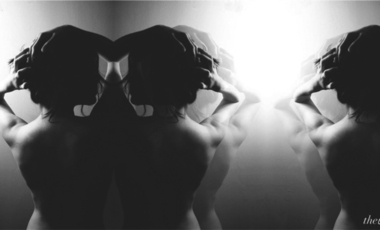Sexual fluidity is a different experience for everyone

Emma Rose Kraus
Intern Journalist
For some people, sexuality is as clear as day and stays pretty consistent throughout life. Yet for others, personal sexual feelings can change over time or even based on the people they are around and their connection with them. These people may consider themselves other sexualities but many may also take on the term “sexually fluid” to explain this phenomenon.
“It means I am someone who feels my sexual interests should not be limited by any kind of standard,” Julie, who identifies with both bisexuality and pansexuality, alternatively explains. “I do not let [identities] limit how I experience my sexuality. They are just explanation labels. I experience my sexual interests and then these words just are a way to encompass what that means to me to other people.”
So, too, do married couple Eli, a genderfluid, panromantic homosexual, and Chris Ashton, who is agender and polyamorous, identify with the term.
“I’m not bisexual,” says Eli. “I’m not naturally attracted to women. I don’t mind having sex with women who I’m emotionally connected to, or romantically attracted to.”
“It’s the experience of having my preferences and the way I view relationships change over the years as my life changes with it,” Ashton says. “My physical attractions are fickle and unpredictable, so I don’t rely on them to gauge how I feel about someone.”
For people who are sexually fluid, who they are interested in and what they are attracted to cannot be contained within one label. But they may end up choosing one for simplicity’s sake when speaking to others who may not understand or be close enough to have a full-fledged conversation with on the topic.
“I’m almost never in situations where I need to explain [my sexuality],” acknowledges Ashton. “I usually just say I’m pansexual. It doesn’t explain everything, but it does the job until I get to know the person better.”
Julie, on the other hand, has a different approach.
“I kind of don’t explain,” she admits. “I perform my sexuality, if it makes them uncomfortable, I leave. I think I have a bias where I feel that if you don’t respect the freedom of sexual interests and sexuality it must be for religious reasons. I know that is incorrect, but it’s a subconscious assumption I have.”
All three expressed their frustrations with the stereotypes surrounding sexual fluidity and how it has generally come to be understood by society.
“The slut, the alcoholic, the young fool, the angry single person,” Eli lists. “People who are sexually fluid often find themselves treated like they don’t really understand how things work yet, like they’re going to discover some deep truth about the world and then they’ll stop being so free or something.”
“The first time I came out as bisexual to a family member, I was told, ‘Yes, I can understand how people have higher sex drives.’ As though that was part of it,” reveals Ashton. “I’m assumed to be promiscuous and get a lot of inappropriate advances because of it. I’m also incredibly misunderstood.”
Yet the community, which may not be as visible in day-to-day life or even at Pride events, has strong online presence that has allowed it to flourish even against opposition from the LGBTQ and straight community alike.
“I had a lot of help from different subreddits,” Ashton says, mentioning the popular forum website. “You can type in reddit.com/r/whateveryouwant and find just about anything. I’m also lucky to have plenty of queer friends.”
“Laci Green helped me a lot when I was younger,” says Julie. “Ash Hardell is good right now. They are both youtubers.”
“Don’t get me wrong,” she concludes. “I’m attracted to certain gender performances, but the concept [of gender] is still alien to me so it affects my sexuality since we all perform sex in gendered ways.”
_
Copyright 2017 The Gayly - 6/29/2017 @ 7:54 a.m. CDT





